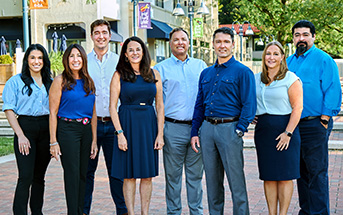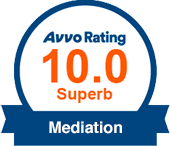Columbia Child Custody Lawyer
When two people in a relationship share a child together, and that relationship comes to an end, deciding how each parent will continue to play a positive and meaningful role in their child’s life under this new dynamic is essential. Often, it’s not an easy matter to decide; child custody matters can be highly emotional and generate a high level of conflict. The Columbia child custody lawyers at Weinberg & Schwartz, L.L.C., offer a guiding hand to carry you through your Howard County divorce or child custody dispute. Guided by a deep understanding of Maryland child custody law and years of experiencing shepherding clients through mediation, collaborative law and courtroom litigation, our family law attorneys can help ensure that your needs and the needs of your children will be adequately represented in any child custody agreement or court order.
Determining Child Custody in Maryland
The Maryland courts determine custody based on the standard of the best interest of the child. When it comes to deciding custody, many factors are considered by the court:
- Fitness of the parents;
- Character and reputation of the parents;
- Desires of the parents;
- Any agreements between the parents;
- Each parent’s ability to maintain familial relations between the child and other family members;
- Child’s preference;
- Material opportunities affecting the child;
- Child’s age and health;
- Suitability of the parental homes;
- Whether the non-custodial parent will have reasonable visitation;
- How long the child has been separated from a parent;
- Any prior abandonment or surrender of the child;
- Or any other relevant facts.
Legal and Physical Custody
When determining child custody in Maryland, the court considers two different aspects of custody separately: legal custody and physical custody.
Legal Custody
Legal custody is the right to make decisions regarding matters of major significance in a minor child’s life. A parent with legal custody makes decisions about the child’s health, education, religion, and general welfare. A Court may grant the parents joint legal custody, especially if the parents can demonstrate the ability to communicate with one another. The court may also grant one party to act as the “tie-breaker” or appoint a parent coordinator if the parents cannot work together for their children’s best interests.
Physical Custody
Physical custody means having the child in your actual physical possession, deciding where the child lives, and being responsible for the child’s well-being. Physical custody is usually shared between the parents on some basis that the parents work out together. If they can’t, the court will decide on the appropriate arrangement based on the factors set out above. Shared custody means that the children live with each parent for at least 127 overnights per year or 35% of the year. When a parent has more custodial time than this, that parent is designated as the primary residential parent. In contrast, the other, non-custodial parent, is given custody or visitation in a manner agreed upon by the parents or decided by the court. The judge can also give physical custody solely to one parent if doing so is in the child’s best interests. The way physical custody is arranged impacts the child support calculation as well.
Both legal custody and physical custody can be shared jointly by the parents in some fashion or granted solely to one parent alone. Also, the two types of custody don’t have to be ordered in the same way. For instance, the court can award physical custody solely to one parent while still requiring the custodial parent to consult with the non-custodial parent on important child-rearing matters.
Get the Child Custody Result That Meets Your Needs
The decision of child custody does not have to be left in the hands of the judge. Parents can and should try to work out custody matters between themselves, whether through informal negotiations or a more formal legal process such as mediation or collaborative family law. With a negotiated, mediated or collaborative result, the child custody arrangement is more likely to meet both parents’ needs and provide a practical framework that works for the whole family. Weinberg & Schwartz, L.L.C., is specially trained and experienced in all forms of alternative dispute resolution as well as courtroom litigation of child custody disputes.
Maryland Child Custody Lawyers Serving Howard County
To discuss child custody matters in an upcoming divorce or independent child custody proceeding in Howard County, call the Columbia child custody lawyers of Weinberg & Schwartz, L.L.C., at 410-997-0203 to review your case with dedicated Maryland divorce lawyers serving clients in Ellicott City, Fulton, Maple Lawn and Clarksville.











